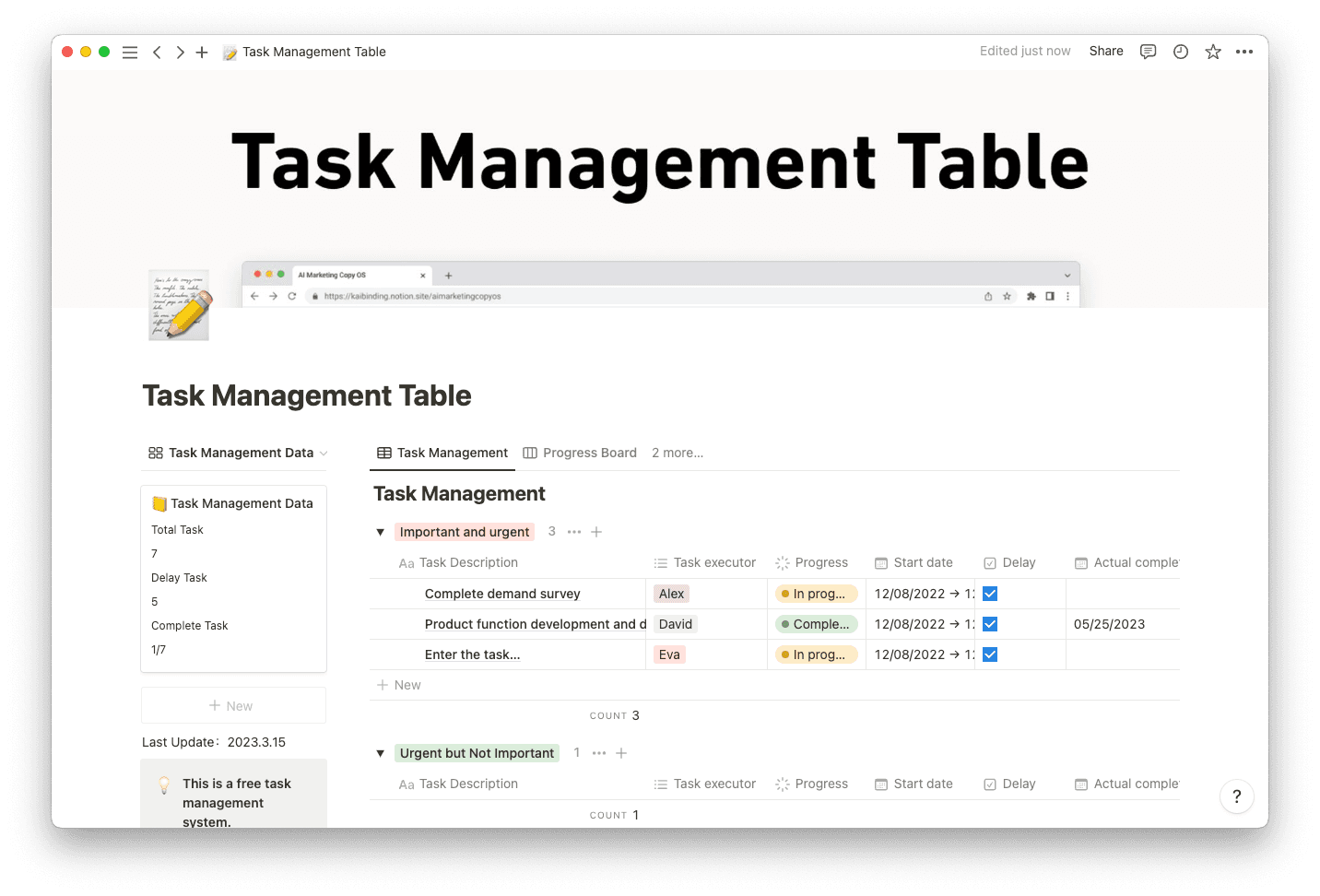As a manager, it’s your job to make sure your team completes tasks on time and does them well.
But that’s easier said than done. You might be an expert at the technical parts of your job, but being an effective manager is so much more than your hard skills. Motivating the team means communicating effectively, paying attention to individual needs, and keeping a positive attitude when the going gets tough.
The great news is that all of those management skills are available if you put in the work. Learning how to be a good manager takes self-reflection and effort, but with a little practice and elbow grease, you’ll be well on your way to leading a happy, productive team.
How to be a good manager: 7 tips
Effective management means surviving under pressure and maintaining a diverse skill set that balances the personal and the practical. It doesn’t happen overnight — and sometimes it doesn’t happen at all. As a leader, you’ll always make mistakes. But trying harder to improve your skills and be your best is key to success.
Here are seven tips to incorporate into your management style:
1. Set clear goals and expectations
Giving your team a clear objective ensures that everyone is on the same page and has something to work toward. They can only meet goals effectively if they know what you expect. Before starting any project or product, take the time to define everyone's roles and clearly explain the tasks at hand. This combats confusion and ambiguity.
Goal-setting is also when your interpersonal relationships with team members should come into play. Observe everyone’s strengths and weaknesses, and if you find something needs work, help them create a path toward improvement.
2. Maintain clear communication channels
To better understand your team's needs, communication is key. Having clear channels — and expectations for communication — makes sure everyone understands updates and instructions when they come, and it gives everyone a place to ask questions. Resolving conflict is also easier when you already have a culture of transparency.
3. Be encouraging
Giving constructive feedback is part of the job, but the way you approach it makes all the difference. Nobody wants to work under a manager who’s constantly criticizing and berating. Along with regular feedback and performance reviews, provide a few words of encouragement when your team (or an individual) does an excellent job.
4. Acknowledge achievements
On the same note, give credit where it’s due. To further boost your team's confidence and foster their growth, acknowledge when they do a great job or go above and beyond. Studies show that people who don’t feel recognized at work are twice as likely to quit, so if you want to keep a hardworking team, use praise and incentives.
5. Delegate strategically
Everyone on your team has different strengths. Someone might be great with time management and someone else might be better at communicating with other departments. To complete tasks on time and maintain a well-oiled team, you need to know how to delegate with everyone’s skills in mind.
Assess the strengths and weaknesses of your team members and give each person tasks that complement them. That doesn’t mean limiting their growth or making some people do the brunt of the work — it’s just about balancing everyone’s knowledge effectively.
6. Provide constant training
Successful management also means recognizing when to upskill. Every workplace is ever-evolving, and everyone has to do their due diligence to stay up to date (even managers). Keep tabs on your industry and recognize when it’s time for some team training, whether that’s an hour-long presentation or an intensive workshop.
Constant training is also individual. If you notice someone on the team struggling to complete a task because they lack a skill, give them a hand and work with them to improve. They’ll thank you for it.
7. Improve decision-making abilities
Making decisions swiftly (and quickly) is a defining trait of great managers. Your team will look to you for directions, and if you’re uncertain or indecisive, they’ll absorb those feelings too.
That doesn’t mean you need to know everything all the time. Even if you’re unsure, you can still set up a plan to help your team come to a conclusion or choose the best path forward. Uncertainty doesn’t have to equal a lack of confidence.
Management don'ts
Becoming a better manager at work means recognizing both your faults and your strengths. Here are three management mistakes to avoid:
1. Micromanaging
If you critically assess every team member's decision or watch over their shoulder as they work, you’ll negatively affect their performance. Nobody likes being micromanaged, and nitpicking someone’s work could make them feel like you don’t trust them or their skills.
Employees thrive when they feel like they can handle tasks independently with your support. Give your team members the freedom to shine and use their skills without constantly badgering them.
2. Being overly confident
While no one’s disputing how hard you worked to get to a managerial position, that doesn't mean you have all the answers. Working on a team is a collaborative process, and you should be the guiding hand rather than a dictator who doesn’t take criticism. This type of egotistical thinking will get in the way of learning how to be a better manager.
3. Having clear favorites
Your team members should feel like they’re on an even playing field. Even if you get along with some people more than others, don’t make people feel like they’re lesser. Showing favoritism pits team members against each other and could make some feel like they can’t win. Treat everyone equally, and if someone does need to step up, approach the conversation with kindness.
5 traits of a successful manager
No manager is the same, and that’s a good thing. But there are some common characteristics and leadership skills that show up in successful managers. The five traits below will give you an idea of what to work toward:
Motivational — great managers always try to help team members improve, and that requires a positive attitude. Provide encouragement where you can to motivate your team and encourage collective growth.
Communicative — presenting information effectively, providing instructions, and offering helpful, constructive feedback takes top-tier communication skills. Practice active listening and honesty.
Emotionally resilient — when leading a team, you can't let negative emotions get the best of you. Adopt a growth mindset, manage your stress levels, and be aware of your emotions and triggers. Your emotional intelligence will rub off on the rest of your team.
Collaborative — creating a work environment where team members feel safe and respected is one of your duties as a manager. Involve the whole team as much as you can, asking for opinions and rewarding participation.
Self-aware — always aim for self-improvement. Even if it feels like you’re doing everything right, chances are there’s a skill you could work on or a mistake you could learn from. Try using a performance self-review or collecting feedback from your team to pinpoint areas for growth.
Top tools for top managers
Notion’s connected workspace offers all the tools you need to manage a team with ease. Find improvement plans for struggling employees, plan out your one-on-one meetings, and map out your regular performance reviews. With everything in one place, you’ll be well on your way to a thriving team.







